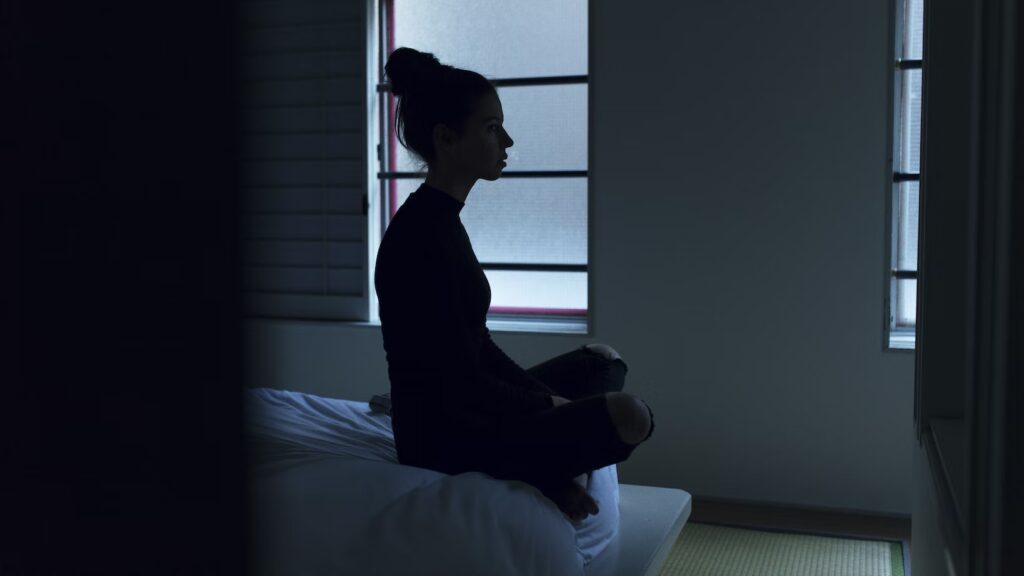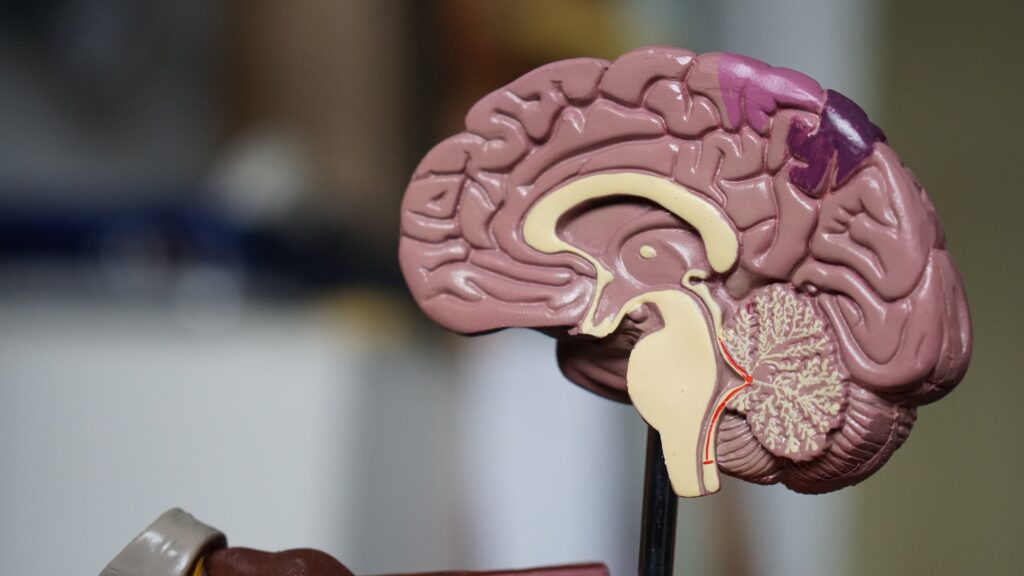Sometimes it’s not easy to fully understand the importance of good mental health and all that it entails.
Having good mental health is not just about not having a mental illness. Every human being needs to have a sense of purpose and get involved in what generates an optimal state. It also implies having good management of stress and its setbacks.
For a mentally healthy person, it is necessary to have the ability to form close relationships and be in touch with her feelings and thoughts.
What is mental health?
Mental health is described as a state of emotional, psychological, and social health. It affects our way of thinking, feeling, and acting. Therefore, we need it throughout life. Mental health also influences our stress management, and the way we relate to each other and make decisions.
Mental illness and poor mental health are not necessarily the same thing, although the terms are often mixed.
It may be that a person experiences poor mental health, but does not have a diagnosis of mental illness. Also, someone who suffers from mental illness can experience physical, mental, and social well-being.
What causes poor mental health?

People affected by this may experience difficulty coping with the daily pressures of home, work, or school.
Sometimes bad days can turn into bad weeks and then bad months. Suddenly, what you thought was under control is out of control.
People with mental illnesses suffer from unstable thoughts, feelings, moods, or behaviors.
The most common mental illnesses are depression, anxiety, bipolar disorder, and schizophrenia. These conditions affect a person’s ability to function on a daily basis and relate to others, in the short or long term.
How to recognize if you are not coping well with a problem?
When you are not in good psychological health, you may experience these symptoms:
- Feeling tiredness and tightness in the chest as soon as you wake up.
- Cold sweats and headaches.
- Your mind goes over things over and over again
- exhaustion and anger
- You are not sleepy or you cannot concentrate
- Unusual thoughts and excessive concern for the opinion of others
Your mental health may be at risk if you continue to experience symptoms like this.
But you are not alone, thousands of people suffer from mental problems every year.
Cope with mental illness
When you don’t treat a mental illness, the symptoms can get worse over time. You may need psychological help at some point.
See your primary care doctor if you don’t know where to start. They can give you the initial diagnosis and referral to a psychologist or psychiatrist.
Do not think that it is too late, there is still hope for a full and happy life, even if you suffer from mental illness. However, it will be easier if you manage your condition with a mental health team.
Symptoms of mental illness
There are different symptoms associated with different types of mental illness. But they have some elements in common, such as:
- eating too much or too little
- Sleeping too much or suffering from insomnia
- Avoid your normal activities
- Get away from close people
- Feeling fatigued even if you get enough sleep
- Lack of empathy or sensitivity
- Suffering unexplained body pain
- Feeling helpless, hopeless, or lost
- smoke or drink excessively
- Using illicit drugs that you have never tried
- Feeling confused, forgetful, irritable, angry, anxious, sad, or scared
- Having arguments and fights with friends and family all the time.
- Go through relationship problems caused by mood swings
- Continually thinking about past events
- Having uncontrollable voices in your head
- Suffering from thoughts of self-harm or hurting others
- Feeling the inability to perform daily activities
You can go through these symptoms due to times of stress or emotional distress. You may have difficulty maintaining your normal activities or your usual self.
We especially associate nervous or mental crises with these periods.
Assess your mental health

The diagnosis of mental disorders involves several steps. You can have a physical exam to see if your symptoms include physical problems.
Since some mental illnesses have less obvious neurological or hormonal implications, your doctor may order underlying lab tests.
It is also possible to do a psychological evaluation or examination. Diagnosis could take a few appointments. It is a complex problem, but you need to be patient so that they can refer you to mental health experts, according to your symptoms and your needs.
Treatment for good mental health
Each person is affected by psychological symptoms in a different way. There is no single treatment for all mental disorders.
Treatments reduce symptoms and some control them. It will then be possible to address the underlying causes and manage the condition effectively.
You need to work together with your doctor and develop a plan. The multi-angle approach may be the most effective for some people. Psychological treatments include:
Medicines
There are four main types:
- antidepressants
- anti-anxiety medications
- antipsychotic drugs
- mood stabilizers
Your symptoms will determine what is best for you. It is necessary to try several drugs in different doses before finding the right one.
Psychotherapy
Therapy gives you the chance to talk about your experiences, feelings, thoughts, and ideas with a mental health professional.
The primary role of the therapist is to act as a neutral mediator and help you with the development of coping strategies and coping mechanisms.
Panic disorders, anxiety disorders, depression disorders, anger problems, bipolar disorders, and post-traumatic stress disorder are treated here. The therapy identifies mental health problems and unhealthy thought patterns. You may be able to change these thoughts and behaviors during sessions with your therapist.
Therapy focuses on current problems and how they impact your daily life. It is beneficial to help you find solutions in real-time, with a different approach.
Stay in hospitals and residential facilities
This may be temporary for some people. It is indicated for intensive treatment during certain periods of time, as a program. Depending on the patient, different programs, schedules, and mixed treatments are recommended.
Lifestyle Treatments and Home Remedies

IT IS NOT RECOMMENDED AS A SOLE TREATMENT. It is a complement to conventional treatment, an alternative. These steps won’t eliminate mental problems, but they may help.
You must strictly adhere to your treatment plan, avoid alcohol and drugs, and adopt a healthy lifestyle. You need to incorporate brain-boosting foods that include omega-3 fatty acids.
First aid
Here we can learn about warning signs and risk factors for mental health problems. People with psychological disorders learn about treatments and approaches.
Those who work in healthcare settings on a regular basis are required to take this training program. The healthcare provider learns how to connect a person in crisis with self-help and professional treatment steps. Includes scenarios and role plays.
Mental health exercises
Physical exercise is physical and psychological benefits. Activities such as dancing, swimming, walking, and jogging improve cardiovascular health and strength.
Physical activities are great for your mind. Also, the symptoms of depression and anxiety can be reduced with this.
Also, you can exercise the brain.
Among these exercises are:
- Power poses. Hands-on hips. So you can notice a temporary decrease in social anxiety.
- Relaxing music. There are studies that people who listen to relaxing music after a stressful event recover faster.
- Practice progressive muscle relaxation. Relax and tense muscles slowly. It can be combined with listening to relaxing music or doing breathing exercises.
- yoga postures. Performing yoga poses for a few can boost self-esteem and increase energy levels.
Mental health recovery
Mental health problems can be successfully treated by most sufferers. You can definitely improve. However, there are some chronic and ongoing problems, but they can still be controlled with proper treatment and interventions.
Try to pay continuous attention to your mental and general health. Take behavioral therapy techniques to learn how to recover from mental health problems more easily every time.
Sometimes it will be necessary to continue using medicines, but it is possible to stop using them at some point.
Recovery means different things to different people.
Raise awareness about mental health
Health professionals are also concerned about mental health. Physical illnesses are well known, but no one can accept that anxiety, PTSD, and panic do not have physical symptoms.
It is important that people are made aware of these common symptoms and signs through awareness campaigns.
Year after year those suffering from mental illnesses increase by millions.
A sense of belonging can encourage people to seek professional help. For symptom relief and to maintain a healthy, active lifestyle, treatment is essential.
Types of Mental Health Professionals

There are several types of mental health professionals, depending on your recovery goals. Understand the different areas of specialization and facilitate your search for the right professional.
let’s review some
- Psychologists: Evaluate an individual through clinical interviews, psychological evaluations, and mental tests. They also provide individual and group therapy.
- Counselors, Clinicians, Therapists: Psychologists specialized in assessing mental health and providing therapeutic techniques. They operate under the title of counselor, doctor, or therapist, depending on the treatment and the space where they work.
- Clinical Social Workers: trained to assess a person’s mental health and use therapeutic techniques according to their specific training. His training also includes advocacy and case management. They prescribe medication.
- Psychiatrists: Provide therapy, prescribe and monitor medication, and diagnose mental health conditions.
Other types of psychological professionals:
- Psychiatric/Mental Health Nurse Practitioners: Provide assessment, diagnosis, and treatment for psychological conditions and substance abuse.
- Primary Care Physicians: they prescribe medications, but they are more general. You need to see someone who specializes in this field for further help.
- Family Nurse Practitioners: provide general medical care and prescribe medications.
- Psychiatric Pharmacists: for medication management. Includes response assessment and treatment modification, management of drug reactions and drug interactions, and patient education.
- Clinical Social Workers: Provide case management, inpatient discharge planning services, placement services, and other services to support healthy living.
- Certified Peer Specialists: An expert in mental health or substance use disorders who have had experience with these conditions. Often these professionals are trained, certified, and prepared to help a person develop goals and strengths to help with recovery. They provide mentoring, guidance, and support.
- Pastoral Counselors: clergy members with training in clinical pastoral education. They are trained to diagnose and provide advice.
Read more at Essential Medical Clinic:


